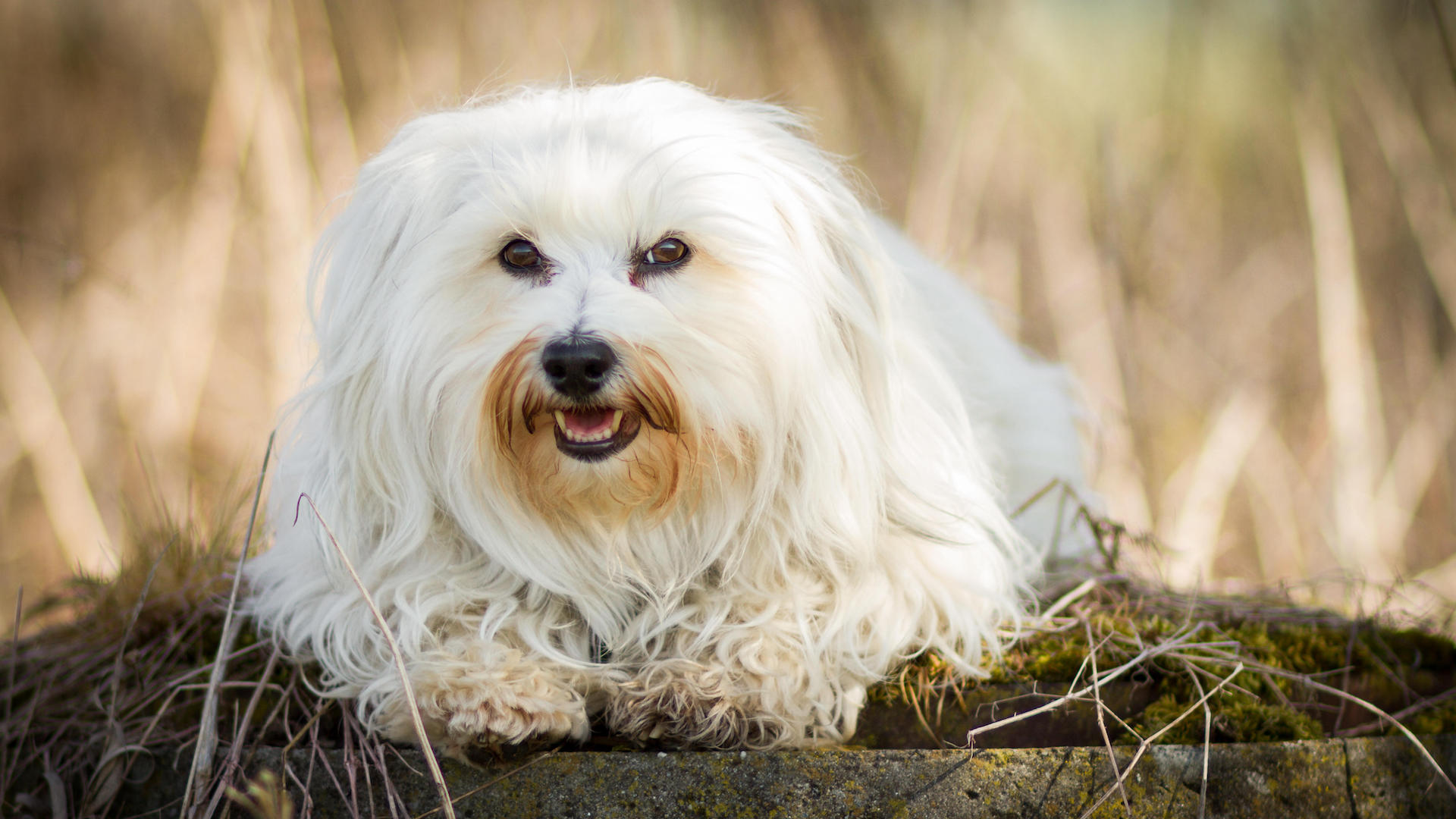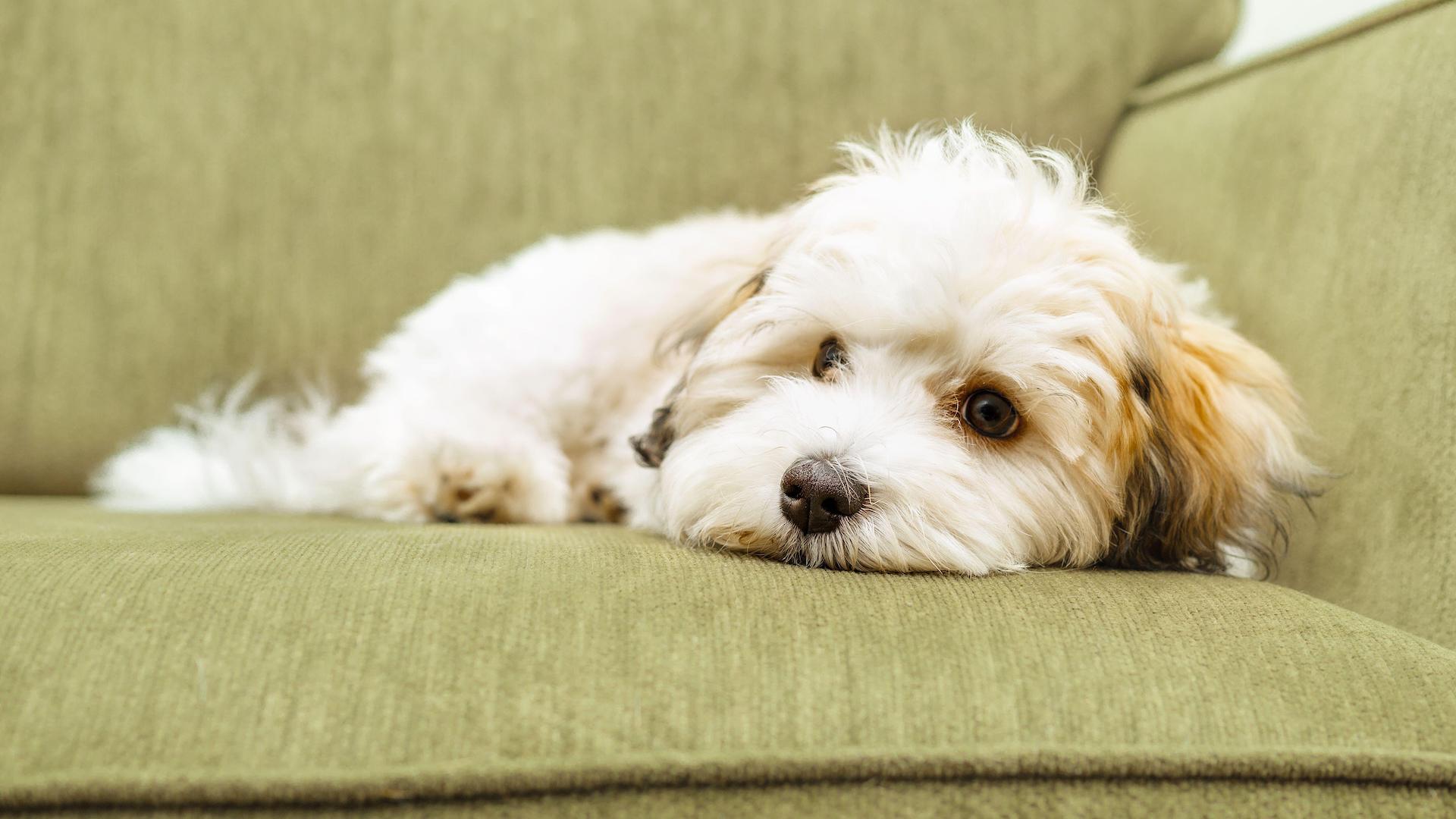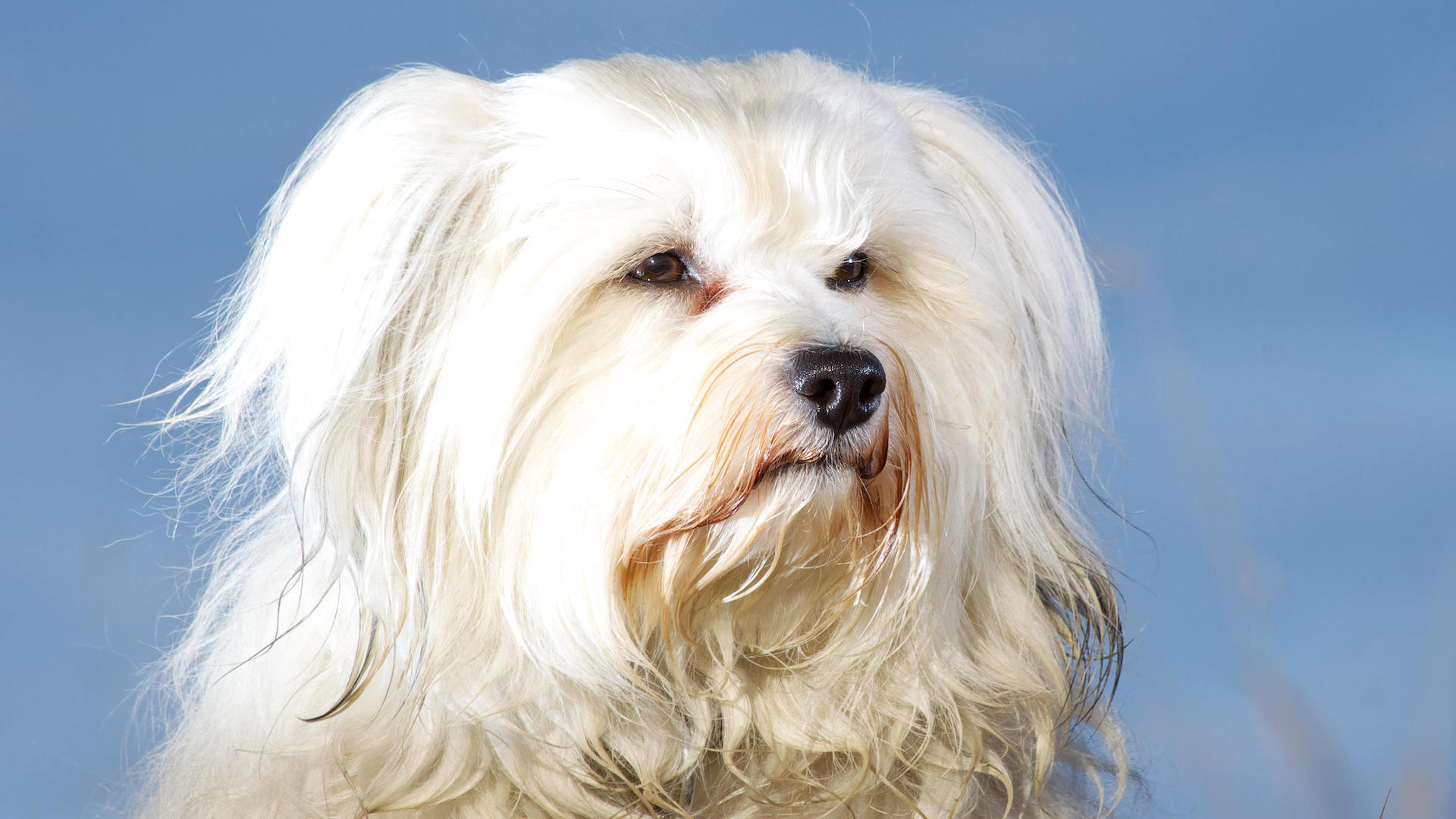

Life expectancy: 13-16 years
Size: 8.5-11.5-inches (male); 8.5-11.5 inches (female)
Coat: Soft, long, silky and wavy
Temperament: Affectionate, responsive, gentle, intelligent, playful
Exercise needs: Around 30 minutes daily
Origin/native country: Cuba
The tiny Havanese is a bichon-type dog renowned for being a gentle soul and they were bred specifically to bond with humans. As the national dog of Cuba, they’ve been taken to many hearts and they’re now popular among those who live in cities and apartments given their small size and low maintenance.
Although they’re cheerful, smart and harmless little pups, they’ll nevertheless come in handy as watchdogs, alerting you to odd goings on in and around your home. And while they love to sleep, they’re mightily entertaining. Let’s check out this affectionate breed in more detail with the help of expert vet Dr Rebecca MacMillan.
Do Havanese need a lot of exercise?
Havanese dogs are not especially demanding so, while you should engage them in exercise each day, you don't need to embark on anything particularly strenuous.
“These little dogs only need moderate amounts of exercise. At least 30-45 minutes of exercise per day is advised, depending on their age and health status,” says expert vet Dr Rebecca MacMillan.
Preferably, you’d allow them to get some fresh air – they’d certainly be happy with a short walk or they’d love playing some games in the backyard. But, as long as they have room to roam inside your house, that can be also sufficient on occasion.
Just make sure you time your sessions well because these adorable sofa spuds are known to be among both the most low-energy dog breeds and sleepiest dog breeds.
Are Havanese easy to train?
You’re unlikely to have any problems training a Havanese dog.
“Havanese are intelligent and eager to please, which makes training straightforward,” says Dr MacMillan. In fact, Havanese dogs are so easily taught, you can – after they’ve mastered obedience commands, of course – even be taught a variety of tricks.
As with most dogs, you should start early and this is when you need to be taking them out of the house so they can get used to the wider world. At the same time, be gentle and encouraging because Havanese are sensitive souls. It’s also worth learning how to reduce separation anxiety in dogs because this one is among the dog breeds most likely to have separation anxiety.
Above all, be patient and use positive reinforcement. And don’t fall for that adorable face.
“It is important to be consistent in your approach,” says Dr MacMillan. “It can be very easy to accidentally let training sessions slide when you own a small, cute breed!”
Are Havanese big barkers?
Havanese will bark if they spot something unusual and they may bark if they’re faced with a stranger.
“Like many small dogs, Havanese do have a yappy bark,” says Dr MacMillan. “However, they are not known for being excessively vocal. Early socialization and training will make them more comfortable in a variety of situations, reducing the risk of any barking tendencies.”

Do Havanese make good family pets?
Absolutely! As gentle souls and one of the friendliest dog breeds, you’ll find them to be very affectionate and mild mannered.
When they’re not sleeping, they’ll be cheerily following you around your home like a doggy shadow and, if you have kids or other dogs around, you’ll find a Havanese will get on incredibly well with them.
It’s why they’re great therapy dogs and among both the best dogs for seniors and the best dog breeds for companionship. What’s more, it doesn’t matter if you live in small home or an apartment. They’re just perfect pets wherever you are.
Do Havanese need a lot of grooming?
As if to underline their perfection, Havanese are among the small dog breeds that don’t shed (much), so they won’t leave hairs all over your home.
“Havenese do shed, but much less than some other breeds,” says Dr MacMillan. And there’s a reason for this. “Havanese have a thick double coat, with a silky overcoat and fluffier undercoat. Dead undercoat hairs get trapped by their outer coat, meaning not many are shed into your home.”
Even so, although they are said to be a hypoallergenic breed, Havenese can nevertheless pose issues for some people allergic to dogs.
“They can still trigger allergic reactions in sensitive people due to the proteins in their saliva and dander,” Dr MacMillan explains. What’s more you still need to groom them regularly to keep on top of knots and prevent mats from forming.
“Ideally, you should brush this breed daily to remove dead hair and keep it in good condition. It’s also worth speaking to a groomer about the ways to care for your dog’s coat, as some owners decide they want to allow their Havanese to develop cords,” says Dr MacMillan.
“This occurs when their coat is allowed to grow naturally, and twists into ‘doggie dreadlocks’ or tasseled cords. Cording needs careful management so speak to a professional.”
Common health problems in Havanese dogs
Although generally healthy, Havanese do have some common health problems.
“Havanese are prone to inherited eye issues, including progressive retinal atrophy (PRA) and cataracts,” Dr MacMillan says. “These are not painful conditions but can seriously affect your pet’s vision.”
This little dog is also prone to hip dysplasia and patella luxation like many pedigree breeds.
“Purchasing your puppy from a reputable breeder who has health screened their dogs before mating is essential,” Dr MacMillan adds.
Liver shunts can also occur in Havanese.
“This is a condition where the blood doesn’t flow through the liver correctly,” she continues. “This causes a build-up of toxins in the body, leading to stunted growth, lethargy, digestive issues, and neurological signs such as seizures.”
Should I get a Havanese dog?
If you are considering a toy dog breed or if you're short on space then you really can’t go far wrong with a Havanese. They are lovingly affectionate with a wonderful temperament and you’ll get a sense that they’re always looking out for you and your family.
Indeed, there are just so many positives, especially if you’re time-poor or just don’t fancy taking a dog on long walks each day. They’re great if you don’t have a lot of space and their bark is certainly bigger than their bite. They’re also great travel companions due to being small and light.
Love little dogs? You’ll want to know more about the Pomeranian
Edited by Georgia Guerin.







